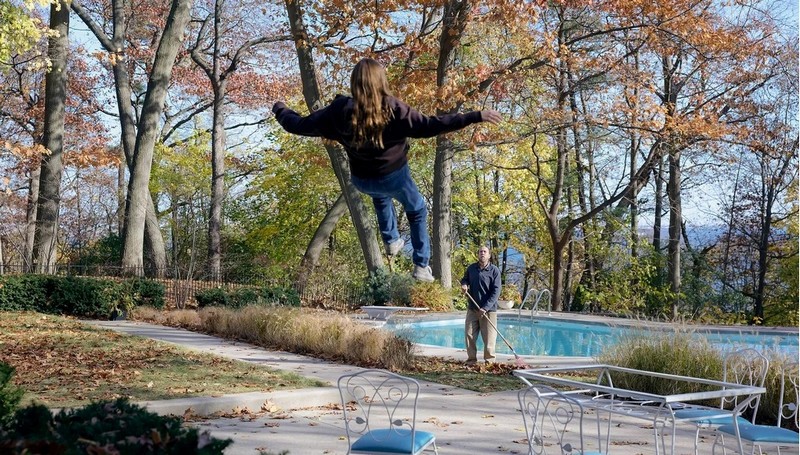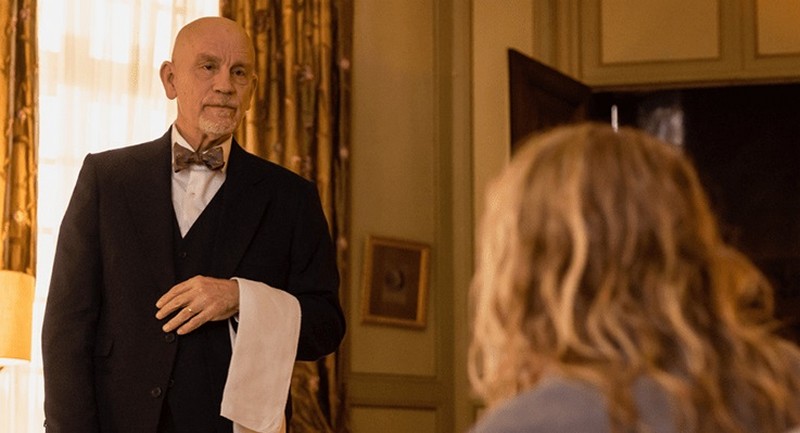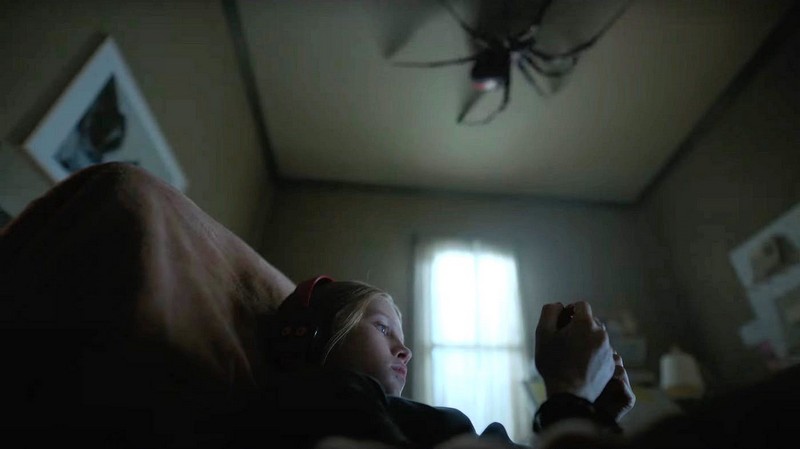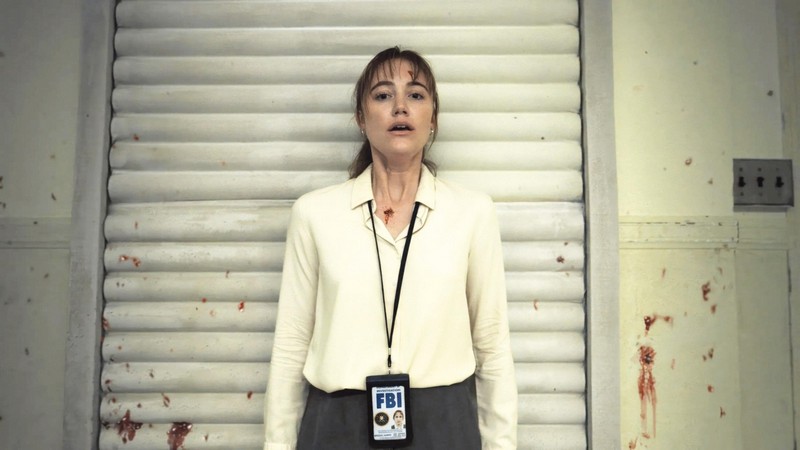Celebrity – it’s the dream of many and the nightmare of some. Norwegian writer-director Kristoffer Borgli (in his English-language debut) takes a quirky but deep dive into the nature of celebrity in the current cultural moment with Dream Scenario. The result, while a little uneven, is nonetheless intriguing.
Depicting dreams in cinema – or any art form for that matter – has proved elusive over the years. Somehow they just never seem “right”. Borgli’s film suffers from a similar issue, but I have to say he’s probably come closer than anyone since Salvador Dali. Instead of being overtly “dreamlike”, the dream sequences are better described as off-kilter. This shift makes the film rather more believable, despite its zany premise.

The film opens with a disturbing dream in the mind of Sophie Matthews (Lily Bird). Objects are mysteriously raining from the sky. Her father Paul (Nicolas Cage) is there, but is seemingly oblivious to the situation. He just keeps on cleaning the pool. When Sophie tells Paul about the dream, he’s somewhat miffed. He considers his passivity in the dream to be some kind of slight on his parenting. His wife Janet (Julianne Nicholson) assures him that it’s just a dream. But when Paul goes to work (he’s a biology professor at a university), he finds it may not be “just a dream” after all. It soon emerges that others – many others – are seeing Paul in their dreams too. And when the phenomenon reaches social media, even more people come forward to recite encounters with Paul in their subconscious. Paul’s decision to do an interview with a TV news program only fuels the fire.
Soon Paul’s in the sights of marketing firms looking to cash in on his fame. He agrees to a meeting with one firm and with meets Trent (Michael Cera) and Mary (Kate Berlant). Although they pitch him on appearing in a campaign for soft drink, all Paul really wants is to write a book about biology and have it published. After the meeting, Trent’s assistant Molly (Dylan Gelula) seeks Paul out and confides that she’s seen him in her dreams too – but unlike everyone else, in hers, he’s an “active” (very active, actually) participant. She urges Paul to re-enact the dream for her, but that doesn’t go well at all. Soon however, the “dream scenario” flips. Instead of Paul being a passive presence in people’s dreams, he becomes an active – and malevolent – force. People become scared of him in real life. He’s ostracised at his work and in the community. The dream has become a nightmare.
Dream Scenario is clearly concerned with the state of social discourse. That includes social media, but it’s not only that. In some ways, this could be considered a companion piece to Todd Field’s excellent Tár. Like Field, Borgli posits that actions have consequences. You might notice that the nightmares involving Paul only start after he transgresses in a significant way. Even though before that point he was vain and naive; once he actually crosses the line, things start to fall apart. I found the nightmare sequences themselves really quite disturbing; and it may be no coincidence that Ari Aster (Midsommar) is a producer on the film.
For all its clever construction and smart observation, Borgli’s script runs out of steam in the third act. It kind of fizzles out into what I think is a very sad ending. While the final scene certainly squares the circle with an earlier scene, it speaks more to Paul’s ultimate fall than to any sense of hope.
Nicolas Cage’s performance here is what one wit described as “Nicolas Caged” – as opposed to the “Nicolas Uncaged” of say Renfield. It also calls back to his fantastic turn in Charlie Kaufmann’s Adaptation. This is the restrained, thoughtful Cage; the actors’ actor. And it absolutely works here. Julianne Nicholson (I, Tonya) provides a great foil for Cage as the ever-practical Janet, while Lily Bird and Jessica Clement play his kids as rightly bewildered by the situation. Most of the other characters drift in and out of the film, though I would shout out Dylan Gelula (Loot) who is excellent in the pivotal role of Molly.
Dream Scenario is a great idea; so it’s something of a shame that Borgli wasn’t able to bring that idea to complete fruition. But while he doesn’t stick the landing, the film is certainly bold and interesting enough to warrant a trip to the cinema.
David Edwards
Other reviews you might enjoy:
- The Unbearable Weight of Massive Talent – movie review
- I, Tonya – movie review
- Aftersun – movie review

David Edwards is the editor of The Blurb and a contributor on film and television





